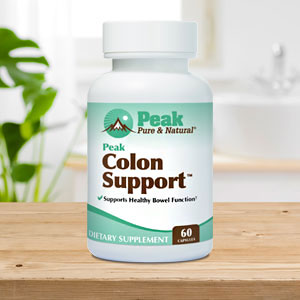Get Easy Health Digest™ in your inbox and don’t miss a thing when you subscribe today. Plus, get the free bonus report, Mother Nature’s Tips, Tricks and Remedies for Cholesterol, Blood Pressure & Blood Sugar as my way of saying welcome to the community!
Help getting back in the saddle again following heart attack

When I was a child in the 1960s, hearing that a grown-up had suffered a heart attack meant to me that they’d died. Hearing that someone had actually survived was highly unusual.
That’s mainly because doctors didn’t yet understand what a heart attack was: an area of damaged and dying heart muscle caused by an interruption in the blood supply. Nor were there clot-busting drugs or angioplasty (a procedure that restores blood flow through a blocked artery).
Nowadays, you’re likely to hear more about how to prevent a first heart attack and how to manage life after, including lifestyle changes that can help prevent a second myocardial infarction (the technical name for a heart attack).
As you might expect, exercise is high on the list of ways to protect your heart. But many heart attack survivors are afraid to exercise, believing that it will strain their heart and lead to another attack.
A recent study has found a simple practice that can lessen that fear and improve the quality of life for survivors, helping them get back in the saddle.
Encouraging exercise after heart attack
Mindfulness meditation is a mental training practice that teaches you to slow down racing thoughts, control catastrophic thinking (assuming the worst will happen), and calm both your mind and body.
It combines meditation with the practice of mindfulness.
Mindfulness is a big buzzword lately, but all it really means is being fully focused on the “now” and learning to control your thoughts so they don’t race ahead and create worry about “what-ifs.”
“Our study shows that mindfulness can reduce fear of movement and improve quality of life in heart attack survivors, with effects extending beyond the completion of the intervention,” says study author Dr. Canan Karadas of Hacettepe University in Turkey.
The study involved 56 patients who had suffered a first heart attack. Their average age was 55. Patients were randomly assigned to either a mindfulness group or a control group for eight weeks.
Patients in the mindfulness group were taught how to breathe deeply and focus on their breathing in the present moment. They were asked to repeat the 15-minute session every day at home, using a recording of the instructions.
Patients in the control group attended one 15-minute individual education session on the structure and function of the heart, the coronary arteries, and diseases of the heart.
By week 4, patients in the mindfulness group had less fear of movement than those in the control group. This benefit persisted when measured again at weeks eight and twelve.
“Our study shows that mindfulness can reduce fear of movement and improve quality of life in heart attack survivors, with effects extending beyond the completion of the intervention,” says Dr. Karadas. “One explanation may be that meditation replaces catastrophic thinking with positive thoughts, making patients feel less emotionally and physically vulnerable.”
“The findings suggest that mindfulness may be considered in the rehabilitation of patients after a heart attack. These are very encouraging but more studies are needed to confirm our findings.”
Other health benefits of meditation
Regular meditation practice offers multiple scientifically proven health benefits:
- It literally keeps your brain from shrinking as you age.
- It produces telomerase, an enzyme that protects your chromosomes and prevents various forms of cancer.
- It improves concentration, balances your nervous system, and is a simple way to control.
- It lets you control disease-causing stress.
Here, Dr. Mark Wiley gives you a primer in four simple meditation techniques.
Editor’s note: There are perfectly safe and natural ways to decrease your risk of blood clots including the 25-cent vitamin, the nutrient that acts as a natural blood thinner and the powerful herb that helps clear plaque. To discover these and other secrets of long-lived hearts, click here for Hushed Up Natural Heart Cures and Common Misconceptions of Popular Heart Treatments!
Sources:
Mindfulness meditation improves quality of life, reduces kinesiophobia in patients with MI — Healio
Mindfulness meditation improves quality of life in heart attack survivors — American Mindfulness Research Association
Lifestyle Changes for Heart Attack Prevention — American Heart Association














